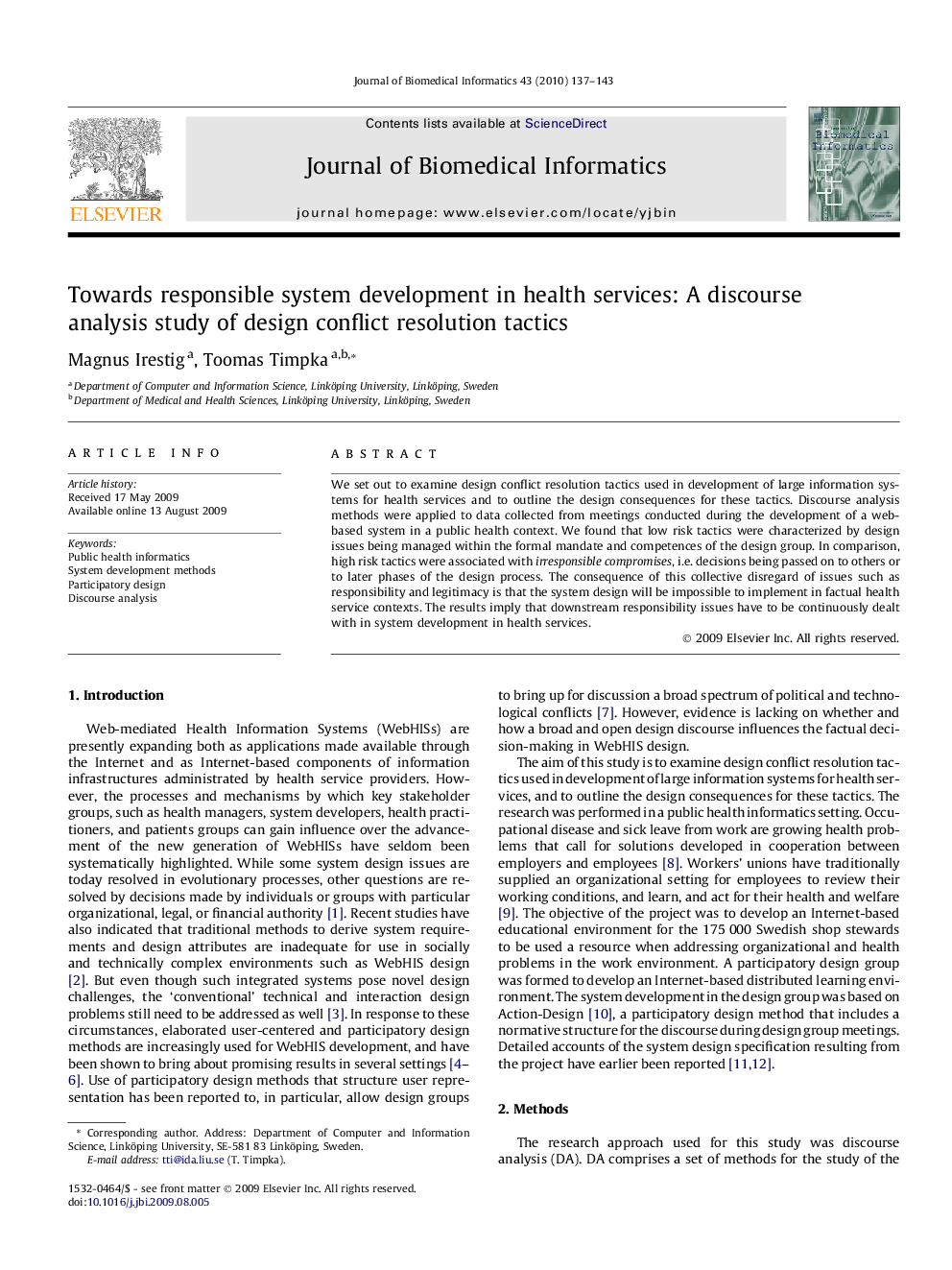| Article ID | Journal | Published Year | Pages | File Type |
|---|---|---|---|---|
| 518461 | Journal of Biomedical Informatics | 2010 | 7 Pages |
We set out to examine design conflict resolution tactics used in development of large information systems for health services and to outline the design consequences for these tactics. Discourse analysis methods were applied to data collected from meetings conducted during the development of a web-based system in a public health context. We found that low risk tactics were characterized by design issues being managed within the formal mandate and competences of the design group. In comparison, high risk tactics were associated with irresponsible compromises, i.e. decisions being passed on to others or to later phases of the design process. The consequence of this collective disregard of issues such as responsibility and legitimacy is that the system design will be impossible to implement in factual health service contexts. The results imply that downstream responsibility issues have to be continuously dealt with in system development in health services.
